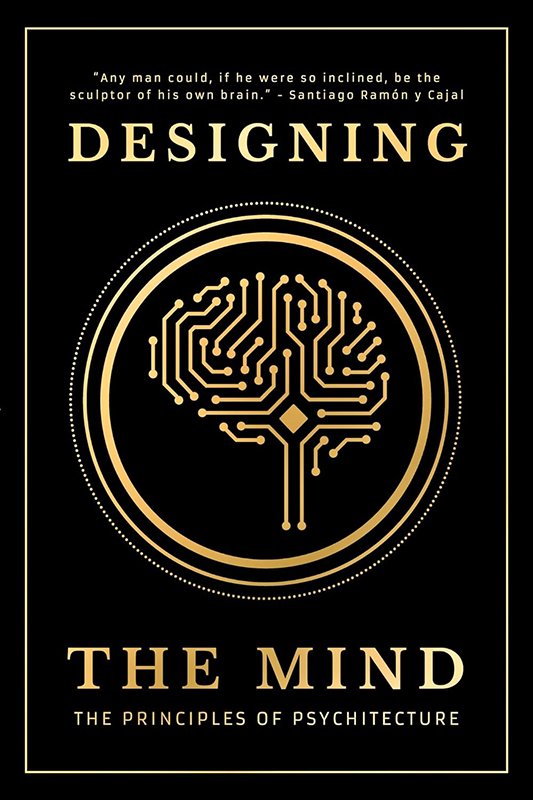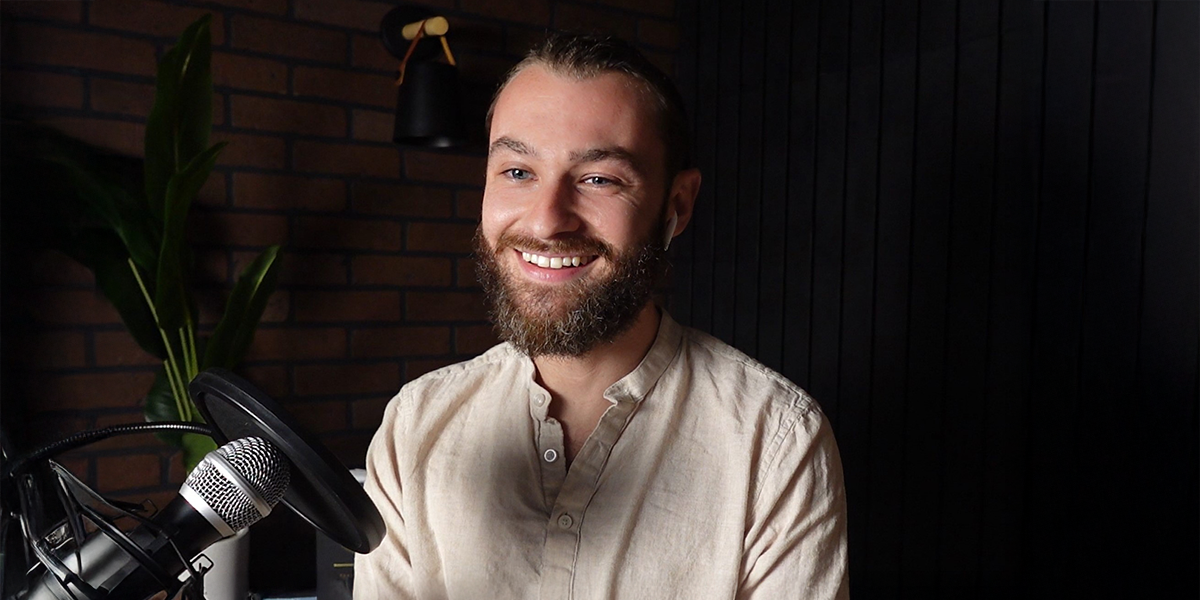Unlocking the Mind’s Potential With Ancient Wisdom, Modern Psychology, and Cutting-Edge Cognitive Science
Ryan A. Bush explores the concept of psychitecture, integrating philosophy, psychology, and neuroscience to help individuals reprogram their minds, overcome fears, and achieve self-mastery through intentional mental design.
Ryan A. Bush offers a fresh perspective on self-mastery and psychological growth, blending ancient wisdom with modern cognitive science to create practical frameworks for personal transformation. His work, including bestselling books and innovative programmes like The Anxiety Algorithm, explores the concept of psychitecture—a systematic approach to redesigning the mind for clarity, resilience, and intentional action. With a background in system design, Bush brings a unique structural lens to self-improvement, helping individuals break free from limiting mental patterns and optimise their thinking. In this insightful conversation, he shares his journey, practical strategies for reprogramming the mind, and his vision for the future of psychitecture, where AI and neuroscience could revolutionise personal development.
A thought-provoking conversation that bridges ancient wisdom and modern science, offering transformative insights into self-mastery and psychological growth.
How did your background in system design influence your approach to psychitecture and self-mastery?
My work designing systems trained me to think in terms of structures, patterns, and leverage points. Rather than seeing thoughts, emotions, and behaviors as isolated occurrences, I view them as interconnected systems—psychological algorithms running in the mind. Just as a designer refines a product for better usability, I explore how we can refine our mental architecture to align with wisdom, well-being, and self-mastery. Psychitecture is essentially the applied design of the mind, optimizing for clarity, emotional regulation, and intentional action rather than just letting default evolutionary programming run unchecked.
What are some of the biggest misconceptions people have about reprogramming their own minds?
One of the biggest misconceptions is that change requires sheer willpower. People think they have to battle their minds into submission, but lasting change comes from working with the mind’s existing structures, not against them. For example, many assume that if they feel anxious, they need to suppress or fight the feeling. In reality, resistance fuels anxiety. The real key is exposure—learning to fully experience and embrace what you fear until it loses its grip. Another misconception is that self-mastery means suppressing emotions entirely, but the goal isn’t emotional detachment; it’s emotional intelligence—experiencing emotions in ways that align with your values and ideal self.
“The real key is exposure—learning to fully experience and embrace what you fear until it loses its grip.” – Ryan A. Bush
You integrate insights from ancient philosophy, modern psychology, and cognitive science—how do you balance these perspectives to form a cohesive framework?
I treat these disciplines as different lenses rather than separate, competing ideas. Ancient philosophy offers deep wisdom on how to live well, psychology provides empirical insights into human behavior, and cognitive science gives us a mechanistic understanding of how thought and emotion work at the neural level. For example, Stoicism and Buddhism emphasize desire modulation—controlling what you want rather than being controlled by it. Psychology validates this through research on cognitive behavioral therapy (CBT), showing how beliefs shape emotions. Cognitive science then maps these processes to brain activity. I merge these insights into a practical system—psychitecture—designed for intentional self-reconstruction.
Can you share a personal experience where applying psychitecture principles significantly transformed your mindset or behavior?
Overcoming my fear of heights was a pretty big moment for me. I had been terrified of heights for as long as I could remember. Even as an adult, I wouldn’t climb up a rock wall with a harness. Despite understanding exposure therapy intellectually, it wasn’t working because I was misidentifying the true fear. Eventually, I realized that my anxiety wasn’t about heights themselves but about losing control—the fear that I might slip or impulsively jump. Once I understood this, I adjusted my exposure exercises. Instead of just standing at heights, I deliberately simulated “slipping” in a controlled way to show my brain there was no real danger. The shift was immediate—something I had struggled with my entire life became trivial in a matter of days.
What advice would you give to someone struggling to break free from deeply ingrained mental patterns?
First, recognize that what feels like an unchangeable part of you is actually a habit—a mental algorithm that can be rewritten. People often struggle because they try to override patterns through force instead of restructuring the underlying system. The key is to use tools like exposure and reappraisal to challenge and reinterpret your beliefs and habits. If social anxiety tells you, People will judge me if I speak up, don’t just argue against it—test it. Say something slightly outside your comfort zone and observe what actually happens. Often, our fears are paper tigers; they lose power once confronted.
In my newest book, The Philosopher’s Field Guide, I introduce 52 “psychotechnologies” like these along with weekly exercises to master each one. The process takes patience—change isn’t instant, but small, incremental adjustments compound over time. If a pattern took years to develop, it won’t disappear overnight—but it can dissolve far faster than people expect when approached methodically.
How do you see the concept of psychitecture evolving in the future, especially with advancements in AI and neuroscience?
Right now, psychitecture is largely an individual effort—you apply principles to yourself, refine your mental frameworks, and experiment with cognitive tools. But AI could transform this process. Imagine an AI-driven psychitectural assistant that helps map out your cognitive biases, emotional triggers, and self-sabotaging patterns in real time. Instead of relying solely on self-awareness, AI could analyze your digital behavior and physiological responses to provide precise recommendations for mental optimization. Through Mindform, we’ve already built early versions of these tools, and a community to collaborate with. And we’re in the process of building a truly futuristic next version now.
Neuroscience is also advancing rapidly. We’re getting closer to understanding the neurochemical basis of things like resilience, motivation, and well-being. Imagine if we could use EEG and other biomarkers to detect negative moods and thought patterns before you even knew you were experiencing them. We could intelligently recommend psychotechnologies to rapidly accelerate psychological growth. Long-term, I see psychitecture evolving into a structured field, much like physical fitness. Just as we have gyms for training the body, we could have centers for training the mind—spaces where people actively develop cognitive clarity, emotional resilience, and behavioral control through guided systems and community.
What advice would you give to aspiring authors looking to write about complex philosophical or psychological concepts in an engaging and practical way?
Write with clarity, not complexity. Many authors in philosophy and psychology get lost in abstract language that makes their work inaccessible. The goal is not to impress but to transform minds—I’ve been guilty of it myself, but I’ve gotten better. Use examples, metaphors, exercises, and ideally diagrams and visual frameworks—don’t just explain ideas; show how they work in real life. Another often neglected practice is to test your ideas before publishing. I sent my first book to over a thousand Goodreads readers for feedback before publishing. It helped me learn what clicks and what confuses people, and these early readers became some of my most supportive readers and Mindform members. Writing about psychology isn’t just about sharing what you know—it’s about redesigning ideas so they actually work for the reader.
EDITOR’S CHOICE
A thought-provoking and insightful guide to self-mastery, blending ancient wisdom with modern psychology to help reshape habits, thoughts, and behaviours.



